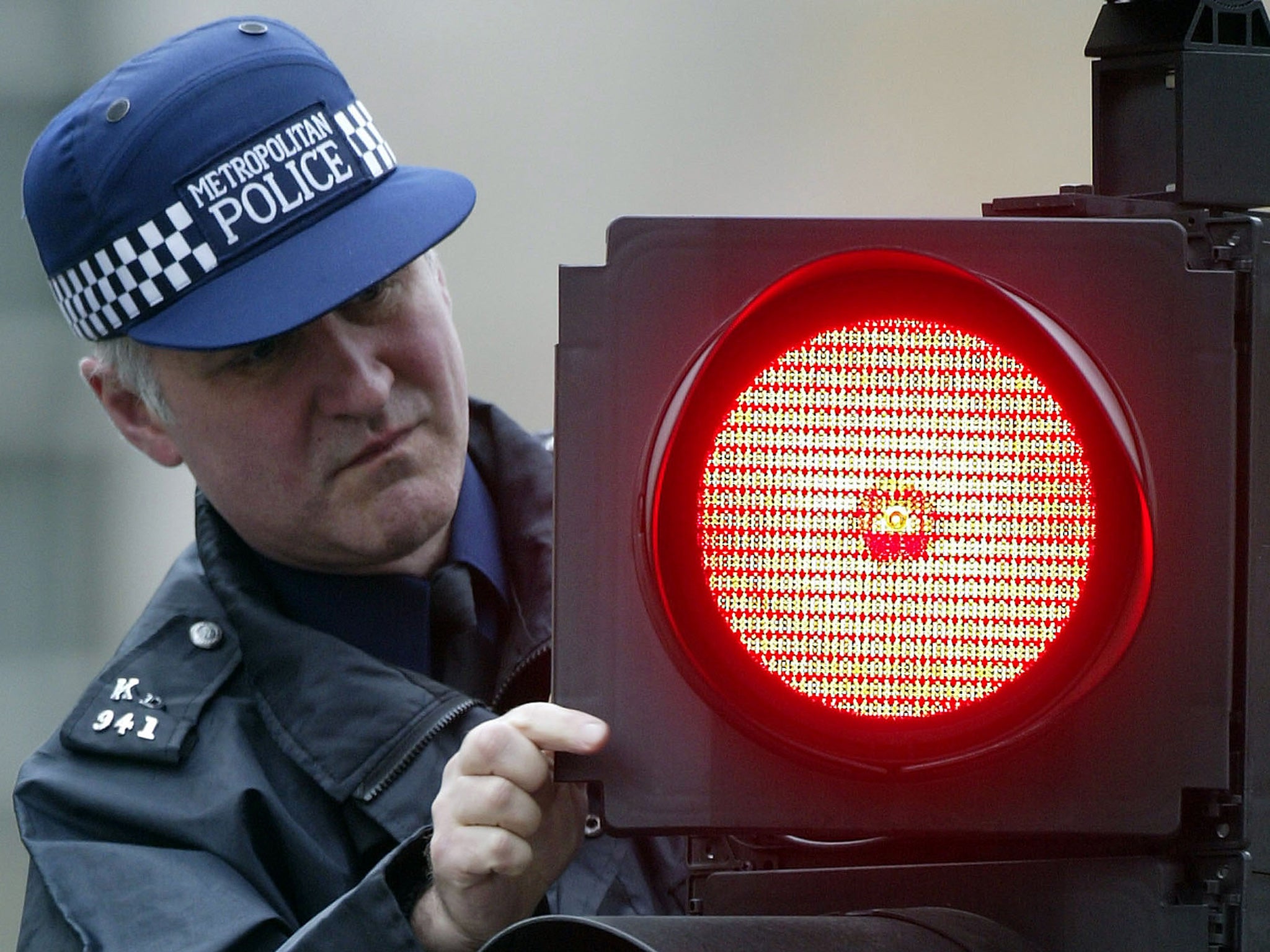Traffic light hack could lead to road chaos, claims expert
Vulnerabilities in traffic light sensors could lead to crashes, researcher claims

Your support helps us to tell the story
From reproductive rights to climate change to Big Tech, The Independent is on the ground when the story is developing. Whether it's investigating the financials of Elon Musk's pro-Trump PAC or producing our latest documentary, 'The A Word', which shines a light on the American women fighting for reproductive rights, we know how important it is to parse out the facts from the messaging.
At such a critical moment in US history, we need reporters on the ground. Your donation allows us to keep sending journalists to speak to both sides of the story.
The Independent is trusted by Americans across the entire political spectrum. And unlike many other quality news outlets, we choose not to lock Americans out of our reporting and analysis with paywalls. We believe quality journalism should be available to everyone, paid for by those who can afford it.
Your support makes all the difference.Traffic control systems in major cities across the UK and elsewhere are vulnerable to a hack that could lead to traffic turmoil, according to a researcher.
Hackers could take control of traffic lights by exploiting vulnerabilities in the sensors that measure car data for traffic lights, according to an Argentinian researcher who tried to replicate scenes from Live Free or Die Hard. In that film, terrorists take over traffic signals.
The sensors feed information about road use to traffic light controllers. The vulnerabilities mean that data can be monitored or changed, researcher Cesar Cerrudo said. A malicious hacker could use the information to manipulate traffic lights to cause jams and alter speed limits, he said.
Carrudo managed to successfully hack the sensors using a drone, he said, which meant that the exploit could be done remotely.
More than 50,000 of the devices are deployed worldwide, in ten countries including the US, United Kingdom, China, Canada and France. In the UK, they can be found in areas including London, Shropshire, Slough, Bournemouth, Aberdeen and Belfast.
The researcher has informed the company, which said the vulnerability was not critical or important, he wrote in a blog post. He will report his findings at Infiltrate 2014, a security conference held in Miami in May.
Join our commenting forum
Join thought-provoking conversations, follow other Independent readers and see their replies
Comments